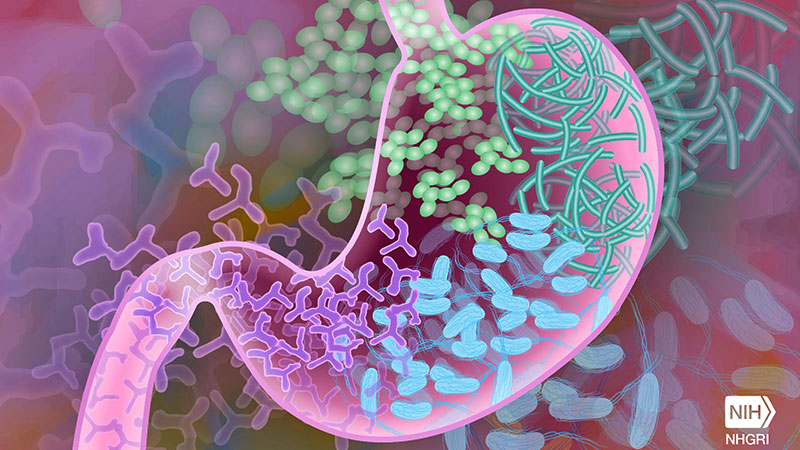Specific types of gut bacteria may increase or decrease the risk for insomnia, while insomnia itself may in turn alter the abundance of certain gut bacteria, a new study showed. However, outside experts challenged the investigators’ assertion that the link is causal.
Investigators identified 14 groups of bacteria associated with increased risk for insomnia and eight that were linked to a decreased risk. They also found that having insomnia was linked to reduced levels of seven groups of bacteria and an increase in the amounts of 12 others.
“The study revealed that a total of 41 gut bacterial taxa have causal associations with insomnia,” Shangyun Shi, first author and medical graduate student, Nanjing Medical University, Nanjing, China, told Medscape Medical News.
“While the impacts of particular bacterial groups on insomnia may vary, there are more important and less important species, which offer the road to potential intervention,” Shi added.
Although the findings are intriguing, outside experts questioned whether the study actually demonstrated a causal relationship.
The study was published online on August 12 in General Psychiatry.
A Causal Relationship?
Traditional studies have focused on associations between gut microbiota diversity or specific bacterial groups and insomnia but have struggled to establish if these relations are causal, Shi explained.
To address this issue, investigators used Mendelian randomization analysis for the study, which can strengthen causal inference and identify specific causal bacterial groups.
They conducted a two-sample Mendelian randomization analysis based on 386,533 participants in a previously published genome-wide insomnia study and gut microbiota data from 18,340 participants in the MiBioGen Alliance and 8208 individuals in the Dutch Microbiome Project.
Results of the two-sample Mendelian randomization analysis of MiBioGen data suggested that 14 groups of bacteria may increase the risk for insomnia (odds ratio [OR], 1.01-1.04), whereas eight groups were likely to reduce the risks for this sleep disorder (OR, 0.97-0.99).
ORs from the Dutch dataset were similar. However, after false discovery rate (FDR) correction, the causal association remained significant only for Clostridium innocuum (FDR, .007).
Reverse Mendelian randomization analysis of the gut microbiota datasets was associated with up to a fourfold increase in the abundance of 12 groups of bacteria (OR, 1.65-4.43) and a 43%-79% decrease of seven taxa (OR, 0.21-0.57).
Additional analyses also revealed significant bidirectional causal relationships between Odoribacter species and insomnia in the Dutch dataset.
There was no evidence of pleiotropy. The use of Mendelian randomization analysis helped to avoid confounding factors and reverse causality, and multiple sensitivity analyses ensured the robustness of the results, the authors noted.
However, investigators urged caution when generalizing the results to other populations, as study participants were of European descent and the microbiome varies between different ethnicities and geographies. Additionally, two-sample Mendelian randomization does not take into account the impact of environmental factors, such as diet and lifestyle, on insomnia.
“Our study offers preliminary evidence supporting a causal effect between insomnia and gut microbiota, providing valuable insights for the future development of microbiome-inspired treatment plans for insomnia,” the authors wrote.
Experts Are Skeptical
Reached for comment, Charlene Gamaldo, MD, sleep specialist and professor of neurology, Johns Hopkins Center for Sleep and Wellness, Columbia, Maryland, said the limitations cited by the authors give her pause.
“I have a difficult time understanding the authors’ interpretation that these findings demonstrate bidirectional causality, or more specifically that gut biome flora causes insomnia,” Gamaldo told Medscape Medical News.
“I do think that the demonstration of an association between the two is interesting, especially since stress can cause gut biome change and stress is associated with insomnia,” she added.
“So, for me the question is whether these types of associations like stress, environmental triggers, etc, serve as upstream triggers to cause both insomnia and gut biome changes simultaneously or in succession?”
John Saito, MD, a spokesperson for the American Academy of Sleep Medicine and a pulmonologist at Rady Children’s Health, Orange, California, was also skeptical.
“This study offers preliminary evidence supporting a causal effect between insomnia and gut microbiota,” he told Medscape Medical News. “More specifically, changes in the composition of the specific gut microbiota may increase insomnia risk.”
However, the bidirectional causal relationship between specific gut microbiota and insomnia remain unclear, Saito added.
While there is general recognition that disruption of gut microbiome may have central nervous system consequences, including alteration in sleep health, more research is needed before it would be feasible to diagnose or treat insomnia by focusing on changes in the gut microbiota, he said.
The authors reported no external funding. Gamaldo and Saito reported no relevant conflicts of interest.
